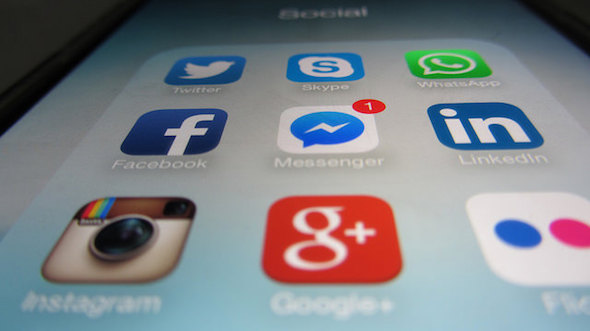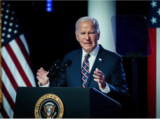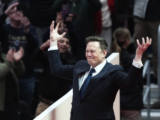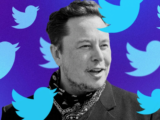
Christiaan Colen : Flickr
By Neal Gabler –
Moyers & Company –
When we talk about the media’s effect on our political discourse, usually we’re referring to the way politics are reported. There are, of course, lots of other ways in which media mediate the political process, from ads to organizing to community building to fundraising, all of which play major roles in our elections. Yet much larger than any of these may be the way the media alter our thinking about politics — purveying not just narratives that often decisively shape our opinions of a Trump or a Clinton or a Sanders, but also the larger psychological context in which we conceptualize our world and ourselves.
Over the past 30 years or so, the divisiveness, the paralysis, the seething anger, the very dissolution of politics as a mechanism for compromise and cooperation, have been the product of an energized right-wing cohort that confuses intransigence for principle. But they’re also the product of a new media ecology that has subtly transformed us in a way that reinforces the things we so lament in our politics today. It’s impossible to say whether the media introduced a new political predicate or reflected and intensified what was already brewing — probably a little of both.
Once, for all our differences, we lived in an American community that was in many ways bound by the media. Today, also in some measure because of the media, we don’t.
I am talking first and foremost about the Internet and social media. Most of us know the clichés: Social media contribute to greater superficiality and less intellectual engagement, more impulsiveness, more opinion and less fact, and, perhaps most important, more polarization as the like-minded find one another and stoke one another’s prejudices and grievances, no matter what end of the political spectrum. It’s not that these things are not all true; there’s a good deal of evidence that they are. But there is something else under which they may be subsumed.
While the Internet and social media have fueled polarization, the more accurate description might be “segmentation.” Oddly enough, segmentation was a long-standing media dream: that various pockets of America once forced to find commonality in the media could instead find niches. That dream was partly realized on radio, which was niche-programmed (top 40, easy listening, all-news), and then on cable TV, which began as a community “antenna” in underserved communities and quickly evolved into a series of niches — a food channel for foodies, a history channel for history buffs, sports channels for sports fans, etc.
But broadcast television was stuck in a stodgy old paradigm: the paradigm of the happy medium. It was forced to program for a vast common denominator, and that meant broadcast television news as well as entertainment shows.
There was a time, back in the late 1960s, when as many as half of the households in America that owned televisions tuned into the network evening news broadcasts every night — before aggressive talk radio and cable TV news, and long before the Internet began peeling away audience. (On average, 24 million watch those broadcasts now — still sizable, but not enough to comprise a fund of national information.)
The ‘60s were a time of shared experiences and even of national conversations, since nearly everyone saw and heard the same things. It also was a time when network news divisions felt and evinced a deep responsibility to inform. After all, that was a primary reason why they had been given the airwaves — the public’s airwaves — in the first place. CBS head William S. Paley reassured his news staff, “I have Jack Benny to make money.”
It’s no accident that this occurred at a time when America had what historians have called the “American consensus” or the “liberal consensus,” or a sense of generally shared values. The media consensus and the political consensus, in fact, went hand in hand.
It is no accident either that the consensus began cracking at the very time right-wing talk radio and then cable news arrived — a crack to which the end of the Fairness Doctrine, requiring equal time for opposing views, certainly contributed. There were, of course, deep divisions before their arrival: geographical, racial, economic, even ideological, though I don’t remember the last ever being terribly pronounced, in part because we didn’t feel they were insurmountable. Republicans and Democrats saw things differently, sure. But they weren’t enemies in pitched battle. They were something else: opponents, as in the “loyal opposition.”
How long ago those days seem.
Talk radio and cable TV — which wasn’t using public airwaves and had no sense of public responsibility, only a sense of responsibility to shareholders — actively splintered us into audiences instead of uniting us into an audience. Prior to their ascendancy, though we had those old divisions we weren’t as fully aware of them, nor did we want to be. We preferred harmony to discord. But talk radio and cable made us aware. They worked at our wounds. They took disaffected individuals and forged them into an army. And it is that army, or rather, armies, that have declared war on American politics.
But all of this was comparatively benign until the Internet, which is the grandest media “segmenter” ever devised. Talk radio and cable news had a few segments, basically right-wing and left-wing, and even the left was pretty thin, because while the right played to the idea of individualization and division, the left always favored community. The Internet, however, has thousands of segments, thousands of pockets where individuals could find reinforcement of their feelings. The Internet, and with it social media, knocked the American Humpty Dumpty off the wall, and it will never be put together again.
This is not the way adherents of the internet and social media put it. For them, Facebook, Twitter, Snapchat, Instagram and all the other apps are ways of connecting, not separating. If so, there seems to be very little evidence of it in our political life, other than those aggrieved clusters I mentioned finding one another. An article by Columbia professor Edward Mendelsohn in the current New York Review of Books, not about the Internet and politics but about the Internet and connectivity, makes a similar argument. On the one hand, Mendelsohn recognizes the ways in which the digital age has made life “increasingly public, open, external, immediate and exposed.” On the other hand, this exposure comes at the expense of our deepest, most permanent sense of self. Amid the churnings of the digital world with its constant updates, selfies, and news bits focusing on externalities, we are becoming unmoored from the larger world and from our more authentic selves. We are virtual selves, created for public export.
Mendelsohn quotes Virginia Heffernan’s new book, “Magic and Loss: The Internet as Art,” in which she says the digital connectedness that is so prevalent on social media is “illusory.” When we use social media, it usually seems less a way of connecting to others than of celebrating ourselves, less a dialogue with others than a monologue about us: what we’re eating, who we’re seeing, where we’re shopping, ad nauseam. Social media have helped create an America in which there is not only very little national conversation, common experience, sense of community or even very much desire to cross the boundaries that divide us; they have helped create an America of 300 million separate entities, each chronicling its own individual activities. You don’t have to imagine what this does to our politics. You’re living it.
Under these circumstances, a healthy political system cannot really exist. I am not sure healthy individuals can either. Heffernan goes on to say that in this digital age of non-stop communication, “we’re all more alone than ever.” That may be the most profound and enduring effect of the media on our politics. We are now so divided we may not be able to unite; we are so divided we live within an aching metaphysical malaise of unconnectedness. We have more “friends” than ever, but feel more friendless.
Ours is an extremely discontented country today, and a seemingly discontented world, too. We usually chalk it up to economic stress, inequality, globalization, disempowerment — the usual suspects. But that media-induced malaise that afflicts us, may be the anxiety of loneliness at a time when not only we have lost one another, we’ve lost our sense of self, the one anchor that might root us in the storm. We are adrift — some from the digital world and some within that world — and so are our politics.














Glynn, I love your writing. In fact, I’ve watched this community of writers grow and expand into something I’m happy to recommend to my social media and other networks. But I have to disagree with the overall premise. I think that social media by itself may be isolating, but it’s not the whole of our existence.
Let me cite an example from my own life. I’ve lived in every state in the southeast, and I now live back in my home state of Alabama where I have watched, painfully, slowly, as the friends that I have met and known from all the other parts of my life have gotten involved in one or another aspect of this social media community. Some are still not on FB, but they are on gmail. Others are texting and in one way or another they are connecting to a larger network whereby they meet, share and exchange communication in what eventually will be a virtual “great, good place” as Ray Oldenburg calls it.
In the meantime, I’m headed off in two weeks to my first ever attendance at Netroots Nation 2016. When I get there, I’m going to share the work you guys are doing (and many of you I know personally) and hopefully bring together more of the wonderful voices I’ve been lucky enough to hear through the limited channels over these past eighteen years since I came back to this part of the world.
If you and your readers want to keep up, I’ll be blogging from there as AlabamaLiberal on DailyKos. And I’m enjoying Jump on the Bus!
Susan Hales
Thanks for the thoughts. I know people love their Facebook. But I didn’t write this one. It was written by Neal Gabler of Moyers & Company. I just published it to pass it on.
I understand there are some good things about social media. But there is also a down side. For one thing, the mainstream, corporate media that Bernie Sanders talked about and I have been writing about for years still dominates Facebook and Twitter. It is hard for an independent news outlet like this one to get the word out without help from more people. We appreciate that help, and the more we can build it, the more of a positive impact we can have.
It is also true that people tend to go to the niche areas, groups, etc. where they are only sharing and talking to people who mostly already agree with them politically. We are at least trying to create an interface that can appeal to mainstream, middle of the road, normal working people, who might learn something they didn’t already know. The lefty blogs and progressive or conservative Facebook groups are no help there. They are just speaking to the choir, so to speak.
I also hear plenty about memes, and people love to share them. I have seen no evidence that they do anything but reinforce attitudes and beliefs people already have. I know of not one single example where they changed anybody’s mind about anything.
I think if we could get more examples of watchdog journalism funded and out there, we could make a big difference. It is just frustrating trying to compete with the big money news chains and their army of conservative commenters, especially when liberals, progressives and Democrats jump right on the bandwagon and share the same crap.
Glad you like the book. If we could get more people to read it, they would have a better understanding of where I am coming from and what education and experience I bring to the table. The royalties will also be used to fund the continuation of this work.
I’ve been reading you, David Underhill, Roger Shuler, and a whole host of writers over the past 18 years since I came back to this part of the world, and I have a bit of a head start on you in the baby boomer thingy, since i was born in 49. I should send you the link to my “hero’s journey” titled Delusions of Grandeur. It’s a bit different from yours of course, but the journey is the same, in the end. But part of that is due to the fact that only through experience can we learn what it is that we don’t know. And that’s why dialogue is the only real way forward. Not just writing, but dialogue. I have noticed a quite interesting change in some online media recently, and I’d love to see more of it – where there are more thoughtful responses to thoughtful writing – and where the yokels that can’t read or reason are just left out of the conversation altogether. It’s good that you are doing some of this.
I know the feeling of having a story break and be carried in papers all over the world. For me, however, it was a website, not a journalism piece. And my name wasn’t on it at all, but when I created the website leofranklynchers.com for my friend Stephen Goldfarb, Ph.D. in 2000, the Wall Street Journal picked it up and wrote about it on the front page, and suddenly we were in 70 plus newspapers. Amazing experience, all in all.